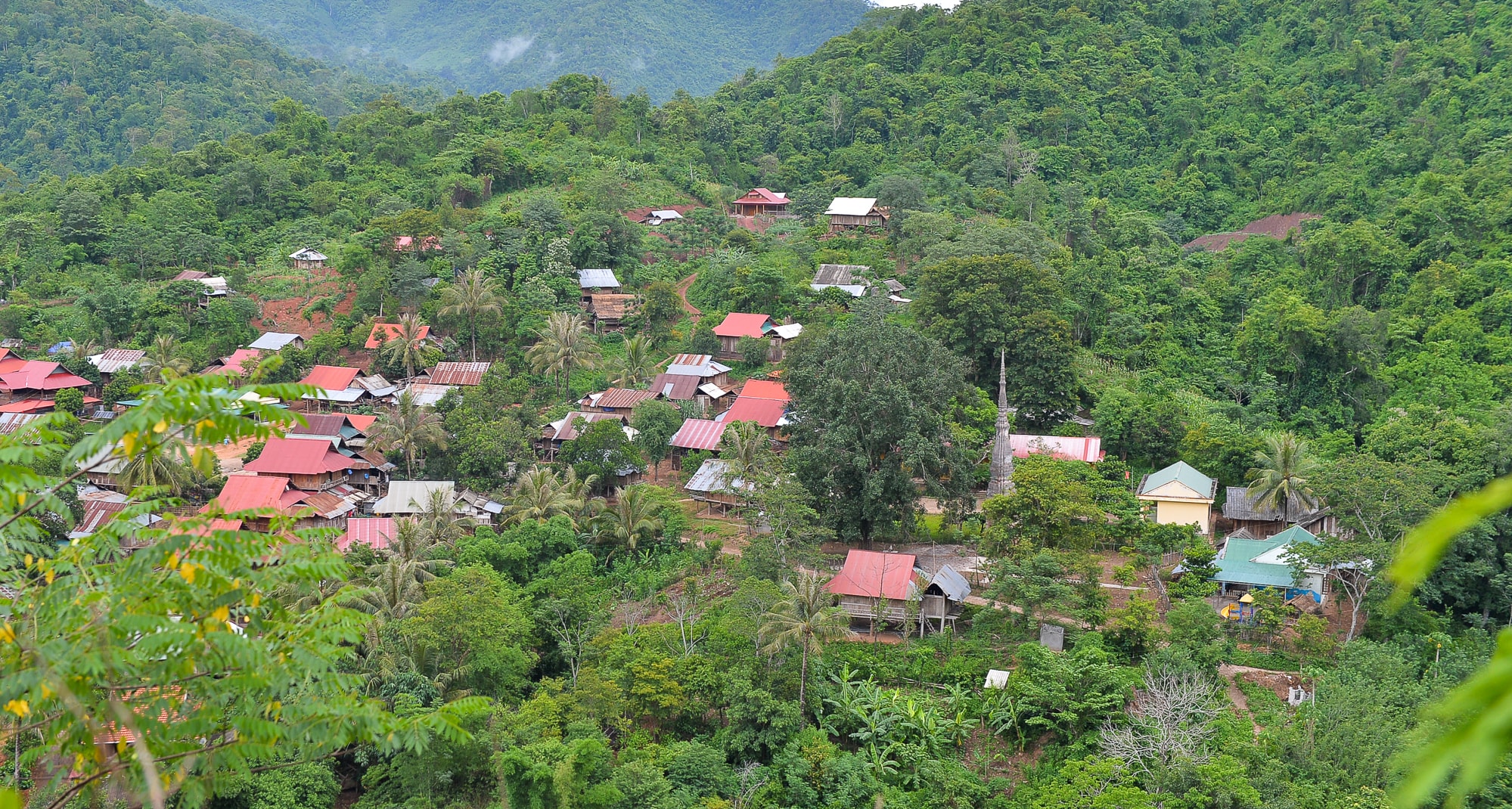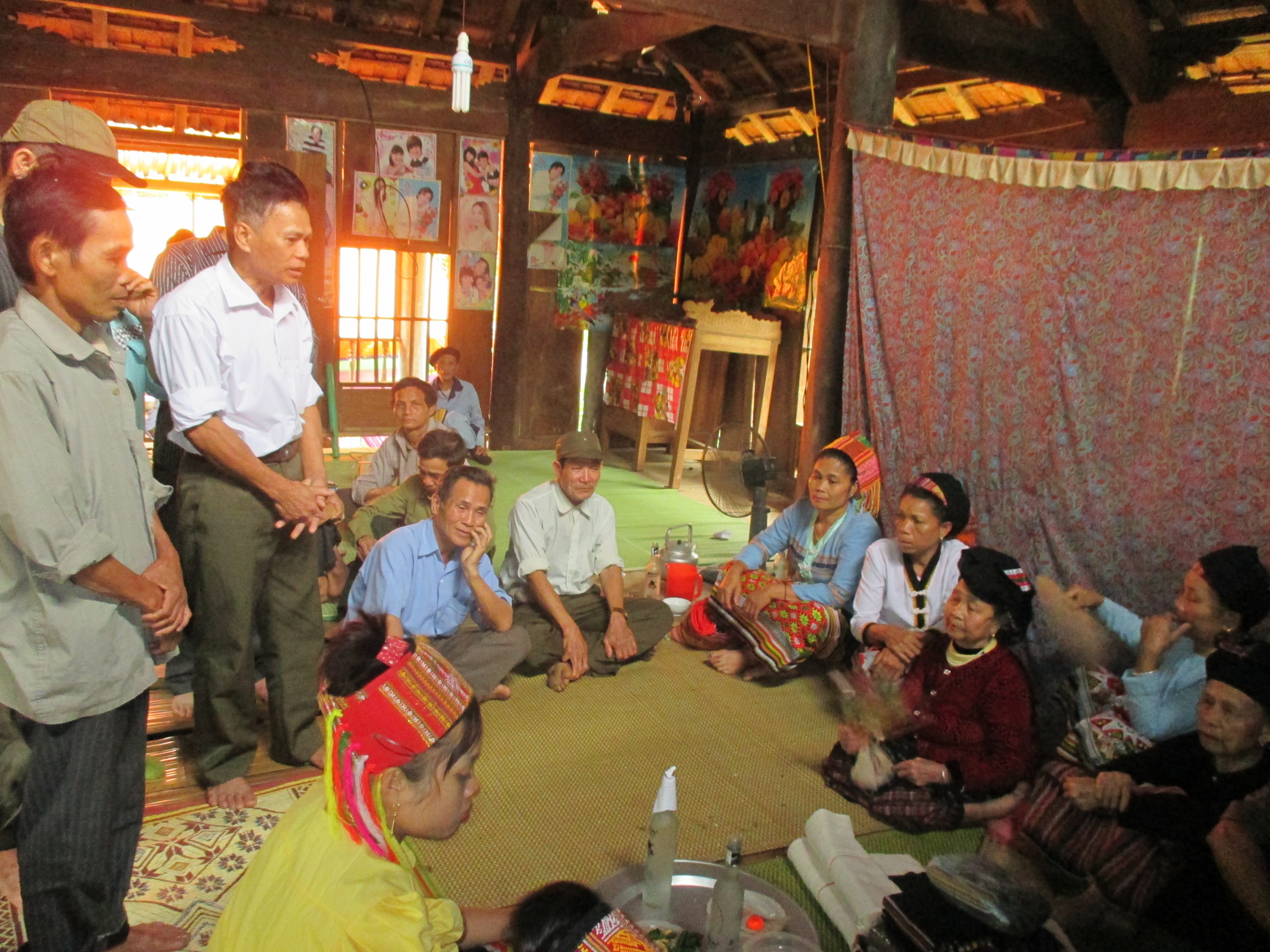Customary law requires the return of Thai wedding gifts and dowry upon divorce
(Baonghean.vn) - After divorce, according to the customary law of many Thai ethnic communities in the mountainous areas of Nghe An, the husband's family often demands back the dowry and the bride price. The matchmaker, the groom's representative, often plays the role of "judge" in handling divorce cases according to Thai marriage customs.
Recently, a mountain boy in Con Cuong district got married. The wife had been married before. The story would not have been special if the groom’s family had not paid a sum of about 20 million VND to the girl’s ex-husband’s family. Although the groom’s parents objected, they eventually had to accept because they often had to give in to “village customs”.
 |
| Yen Hoa village with nearly 100 Thai ethnic households living along the banks of the Nam Non River. Photo courtesy |
It's notindigenous Thai people, in which some places in Con Cuong district still maintain the "bride challenge". About 30, 40 years ago, this wedding challenge was 1 silver bar along with wine, chicken, pig, fabric... Nowadays, people often "challenge" in cash. According to the writer's research, it is currently around 10 million VND. That is not to mention the gifts such as pig, chicken, wine, silver bracelets... From ancient times to the present, there is a customary law that people stipulate that if the wife unilaterally divorces her husband, she must return the wedding challenge to the husband's family. Sometimes it also includes the wedding expenses.
The same is true in the above case. After a period of incompatible living together, the girl unilaterally divorced. After legal procedures, she returned to her mother's house. The husband's family asked her family to return the dowry and wedding expenses. For many reasons, the girl's family still refused to pay when their daughter remarried. The other family then found a way to ask the new husband to pay. To please all parties involved, the girl's new husband's family accepted, considering it as a dowry. But because of that, the wedding expenses became even heavier.
It is a rather special case inwedding customsof the Thai community in the mountainous region of Nghe An. It may seem simple, but to complete a wedding or handle a divorce according to local customs, one must go through a rather complicated process. Thai people in some places believe that when completing the wedding procedures, one must go through four visits to the bride's house. When divorcing, one must also go through four steps. If a couple has a conflict, it is usually a conflict that arises in everyday life. If the conflict is small and can be ignored, it may be resolved with just the advice of both parents. That is also the first step in the process of reconciling family conflicts.
 |
| Procedures for the groom's family to accept the daughter-in-law at a Thai wedding in Con Cuong district. Photo: Huu Vi |
If the conflict is more serious, matchmakers are often needed. According to the Thai wedding customs in Con Cuong district, the matchmaker is a relative of the groom. It can be an older brother, a cousin, or an uncle. As for the Thai in Quy Chau district, some places in Que Phong and Tuong Duong districts, the matchmaker is the chosen person but usually lives in the bride's village. The "matchmaker" often acts as a representative of the groom's family to ask for the bride's hand in marriage. A person from the same village as the girl will understand the future bride's character as well as her parents. People from the same village will also find it easier to talk. And another reason is that the matchmaker is often the arbitrator in the event of a divorce. Choosing someone who is close to the bride's family is also more objective.
The reconciliation step with the participation of matchmakers is often a very serious conflict that is difficult to reconcile. To resolve such cases, matchmakers must skillfully advise, if not once or twice, then many times. If the conflict cannot be resolved, the third step is for the groom's family to "return" the bride to her parents' house. This step is considered the end of the marriage. The matchmakers will have to "choose their words" so that both parties can agree. The final step is to resolve issues related to property. "If the husband unilaterally divorces, he usually does not suffer any loss. Because only the husband's family brings gifts to the wife's family" - Mr. Vi Ngoc Chan, a researcher of indigenous culture in Quy Chau district shared. According to Mr. Chan, the matchmaker, according to the Thai people's wedding customs, plays the role of a "judge". "In any case, it must have the approval of the matchmakers to be considered as having broken up" - Mr. Chan further explained.
 |
| Thai girls join in the Lam Toi dance. Photo courtesy: Sach Nguyen |
